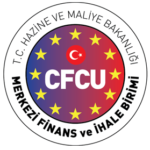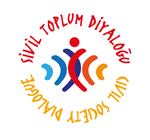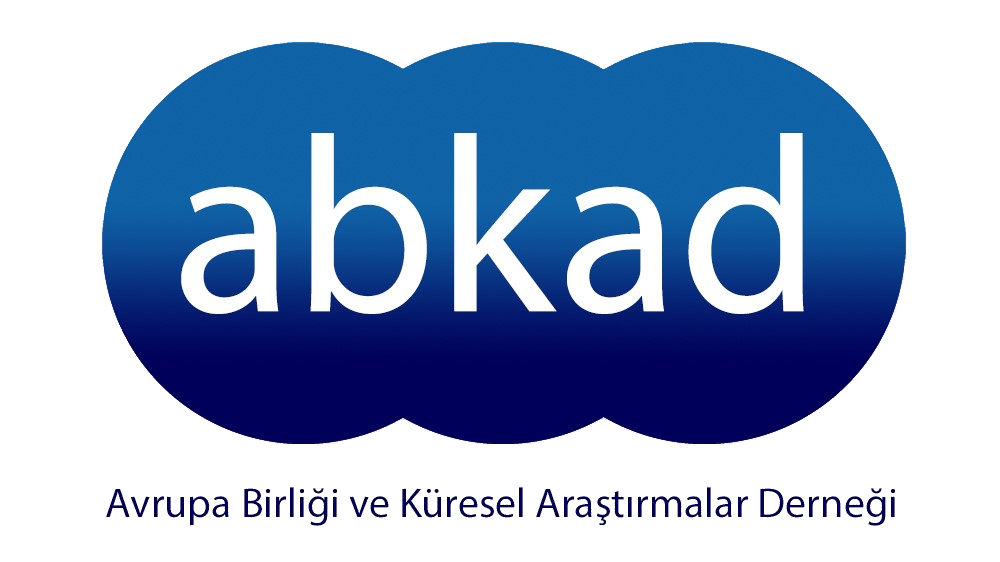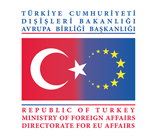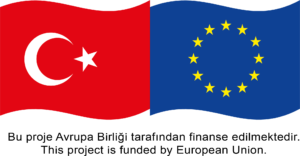
Target Groups
Politicians
Policymakers can be biased, have extremist or populist leanings. Our project aims to facilitate a constructive discussion in the fields of migration and security by targeting the following EU institutions, agencies, member state representatives and national authorities. These target groups can benefit from this project as they strive to create policies based on evidence and consultation, relying on field experience in designing future policies.
European Commission
The European Commission carries out the oversight function of the EU's immigration policy (regular and irregular migration, integration and readmission agreements). Separately, it evaluates the progress of the accession negotiations. In doing so, the European Commission needs to listen closely to citizens and engage with the maximum number of stakeholders in line with the Commission's regulatory agenda. In its quest to be more transparent, accountable and effective, the Commission regularly seeks feedback from citizens on roadmaps, impact assessments and legislative proposals, in consultation with the public. By targeting experts from the European Commission, especially the General Directorate of Migration and Home Affairs (DG HOME) and the General Directorate for Neighborhood and Enlargement Negotiations (DG NEAR), our project aims to increase cooperation between the EU and Turkish NGOs and the European Commission in the field of migration and enlargement.
European Parliament
The European Parliament, as a co-legislative body, is actively involved in the enactment of new laws on regular and irregular migration. Moreover, when approving a new accession to the EU, the European Parliament must have a significant say over the financial aspects of the accession process. While the European Parliament is examining the EU's Common Foreign and Security Policy (CFSP), it shapes its structure and scale through its budgetary powers. It controls the balance of EU financial instruments, which carries out the EU's external activities. Our project is targeting the President of the Turkey-EU Friendship Group, the President of the Foreign Affairs Committee (AFET), the President of the European Parliament Civil Liberties Committee (LIBE) and the European Parliament's Turkey rapporteur and aims to bring local and European civil society representatives together with EU policy makers.
European External Action Service
The European External Action Service (EEAS) coordinates the defense, security and foreign policy responses of EU Member States. Our target group will include experts on EU-Turkey relations, including the Head of Turkey Unit and key contacts in the EU Delegation to Turkey. Our project will help EEAS expand its reach to local and international actors in defense and security, both in Turkey and the EU.
EU Agencies
Similarly, EU agencies such as the European Border and Coast Guard Agency (FRONTEX), the European Asylum Support Office (EASO) and the European Defence Agency (EDA) are important actors that facilitate the implementation of EU measures on the management of external borders, and improve practical co-operation between EU Member States on asylum-related issues, especially when it comes to the implementation of Common Europe. To promote integration between EU Member States within the Asylum System and Common Security and Defence Policies, to contribute to the implementation of EU policies or to perform certain tasks, these institutions bring together different interest groups to facilitate dialogue at the European and international level. Our project aims to strengthen these dialogue mechanisms, especially by increasing the participation of civil society representatives.
Permanent Representations of EU Member States and Turkey to the Union, national parliaments and national authorities
Since migration and asylum are a common problem shared by the European Union and its Member States, EU Member States retain the right to determine the acceptance volumes of people who come from third world countries in search of work. EU Member States have the final say on accession negotiations, but can unanimously decide to launch civilian missions or military operations outside the Union. Our project aims to strengthen dialogue between civil society representatives and policymakers by targeting the permanent representatives of EU member states, as well as Turkey's Permanent Representative to the European Union, national parliaments, national authorities competent in migration and security policies. This target group can also benefit from our project by engaging more in policy-making in the field of migration based on a long-term vision, rather than increased engagement and feedback from the civil society sector and short-term interests.
Non-Governmental Organizations (NGOs)
During previous consultations with NGOs working in the field of migration and security, we have been informed that NGOs in Turkey often do not have the capacity to capture and contribute to policy discussions at national and EU level. The same often applies to NGOs in the EU, which do not have inside knowledge or field experience when it comes to issues such as migration and security. By targeting NGOs advocating refugee rights, fighting to alleviate disasters, or calling for constructive dialogue between the EU and its neighbours to promote a common area of peace, we will equip them with adequate tools, concepts and the latest technology so that they can effectively defend while highlighting additional needs. In addition, we aim for other NGOs to co-own our project and contribute today and in the future.
Academy
The academic sector needs up-to-date information on the latest political developments and general discourse on immigration and security policies. They may also want to communicate policy proposals to policymakers or the wider public. For this reason, the participation of academicians from Belgian and Turkish universities is indispensable for the success of our project together with the students. While making immigration and security more understandable and visible, if we can draw attention to important challenges, they can be lifelong advocates of healthy immigration policies, peaceful foreign policy initiatives and public discourse on refugees that are free from populism.
European and Turkish Media
Negative rhetoric about immigration is common in the media and risks negatively affecting public perceptions. Similarly, media reports about security issues tend to be one-sided, often to ignore the big picture. Unfortunately, as media news breaks away from reality, for commercial reasons, such as getting more clicks, the media landscape is tarnished by fake news and disinformation. Our project, which targets EU media outlets such as Euronews, EUobserver, Euractiv, EU Reporter, Voxeurop, Parliament Magazine, EU Today, EU Political Report, as well as national media outlets such as Belgium's Le Soir and l'Echo, France's France 24, RFI and l'OBS, Britain's Reuters and The Times, germany's Deutsche Welle, aims to counter these negative trends in the European media. We will also target Turkish media such as Hurriyet, Milliyet, Wall, Turkish media reporting in English such as Hurriyet Daily News and Daily Sabah, and international media reporting in Turkish such as Euronews Turkish, Deutsche Welle Turkish and BBC Turkish. We aim to change the negative perception of the public by using social media channels such as Facebook, Instagram, Twitter and LinkedIn in order to produce impartial and independent news in Turkish media channels.
Public Opinion
Citizens of the EU and Turkey are not sufficiently aware of the humanitarian disasters at the borders. There is a public bias against asylum seekers that is often wrongly perceived as economic migrants. The situation is exacerbated by the rise of populism and xenophobia in the EU Member States. Our project will aim to counter misconceptions and disinformation about refugees and highlight the potential benefits they can bring to European societies. Similarly, while the public lacks reliable and objective information on security issues, media coverage on security issues tends to be one-sided. Therefore, our project can have a great impact in providing evidence-based, objective and accurate information throughout our activities, which will be disseminated to the public in the EU and Turkey. Ultimately, EU and Turkish citizens will benefit from greater co-operation to confront the migration problem and create a common area of peace, security and prosperity.
Asylum Seekers
In addition to NGOs, the final beneficiaries could include asylum seekers who can benefit from better protection and integration after increased policy dialogue and co-operation. Quotas, hotspots, border controls, financial aid, readmission, asylum, rescue missions, etc.
